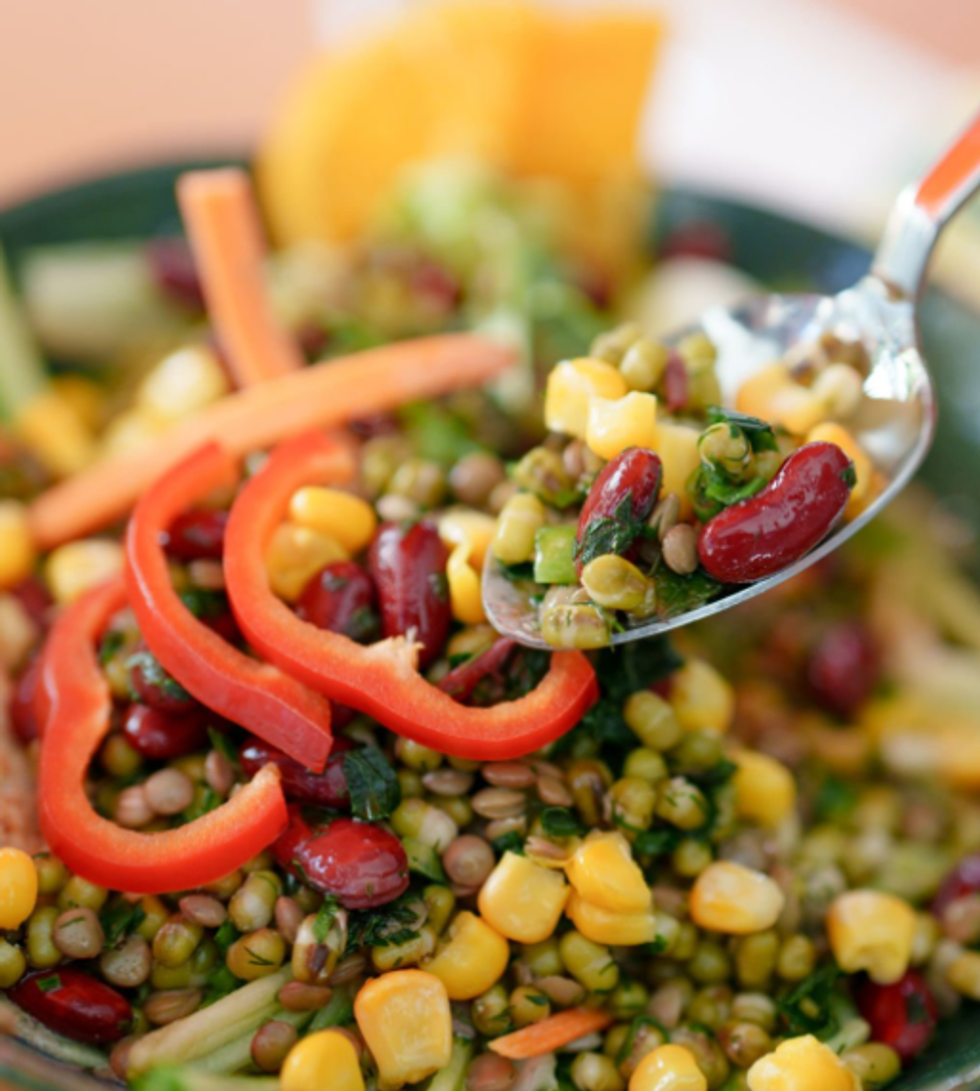Cancer patients following a plant-based diet may live longer

Cancer kills indiscriminately, but new research suggests you can mitigate its worst effects by eating a diet rich in plant foods such as vegetables, lentils, fruits, nuts and whole grains.
A review published as four separate studies in the International Journal of Cancer (IJC) suggests that a plant-based diet, combined with an active lifestyle, could potentially improve the chances of overall survival of patients with cancer. intestinal cancer.
Meanwhile, another study, published in Jama Network Open, found that men with prostate cancer who ate plant-based foods had a 47% lower risk of progression than those who did not strictly follow this diet .
But scientists involved in the CMI studies said more research is needed, with better-designed trials and larger observational studies, to improve lifestyle recommendations for cancer survivors.
Men with prostate cancer who ate plant-based foods had a 47% lower risk of progression
Getty Images
Dr Helen Croker, deputy director of research and policy at the World Cancer Research Fund International which supported the study, said: “This comprehensive and rigorous review of the current state of evidence offers useful guidance on some of the factors related to diet and lifestyle that could improve cancer. survival and potentially help people living with or beyond cancer live longer, healthier lives.
“At the same time, it clearly demonstrates the need for more well-designed interventions and cohort studies to support the development of robust recommendations for patients with colorectal (bowel) cancer and health professionals.
“As we see an increase in the number of people diagnosed with colorectal cancer at younger ages, it is more important than ever that health advice is based on high-quality research. »
The studies into the effects of diet and lifestyle on bowel cancer were carried out by the CUP Global research team at Imperial College London.
In one of the studies, the team analyzed data from 40 studies involving 30,000 people examining the impact of diet on bowel cancer survival.
They found the overall evidence to be “limited”, but added that “consumption of a healthy diet, including plant-based diets, and avoidance of sugary drinks may be associated to an improvement in overall survival after a diagnosis of colorectal cancer.
Another review, which involved examining data from 16 studies involving 82,000 people, suggests that physical activity such as cycling, gardening, housework, sports or walking could be associated with longer survival. long for patients with bowel cancer.
The quality of the evidence was independently interpreted and assessed by the CUP Global Expert Committee on Cancer Survivorship and the Expert Panel.

More research is needed, with better designed trials and larger observational studies
Getty Images
Dr Doris Chan, Senior Researcher in Nutrition at Imperial College London and Dr Kostas Tsilidis, Reader in Cancer Epidemiology and Prevention at Imperial College London, said: “We analyzed several hundred studies, and although most had limitations and potential biases, we are confident. that it represents the best and most recent body of evidence that can help people living with or beyond cancer make evidence-based decisions about lifestyle changes that can improve their well-being -be.
Meanwhile, the Jama study, which looked at more than 2,000 men, showed that those with the highest scores on the Plant-Based Diet Index, which is a measure of diet adherence plant-based in general, had a 47% lower risk of progression. compared to men who had low scores.
The authors wrote: “These results suggest that consuming a predominantly plant-based diet may be associated with better prostate cancer-specific health outcomes in men with prostate cancer. »
The editor’s point of view
The new research is encouraging and is consistent with previous studies linking plant-based diets to a reduced risk of heart disease, type 2 diabetes, hypertension, certain cancers and obesity.
It also makes sense given what we know about the health risks associated with eating processed and red meat.
However, it’s worth reiterating what the researchers said: more research is needed before definitive conclusions can be drawn.
And remember, there is no single diet that can guarantee you won’t get cancer. But a healthy and balanced diet can certainly help reduce this risk.
News Source : www.gbnews.com
Gn Health





